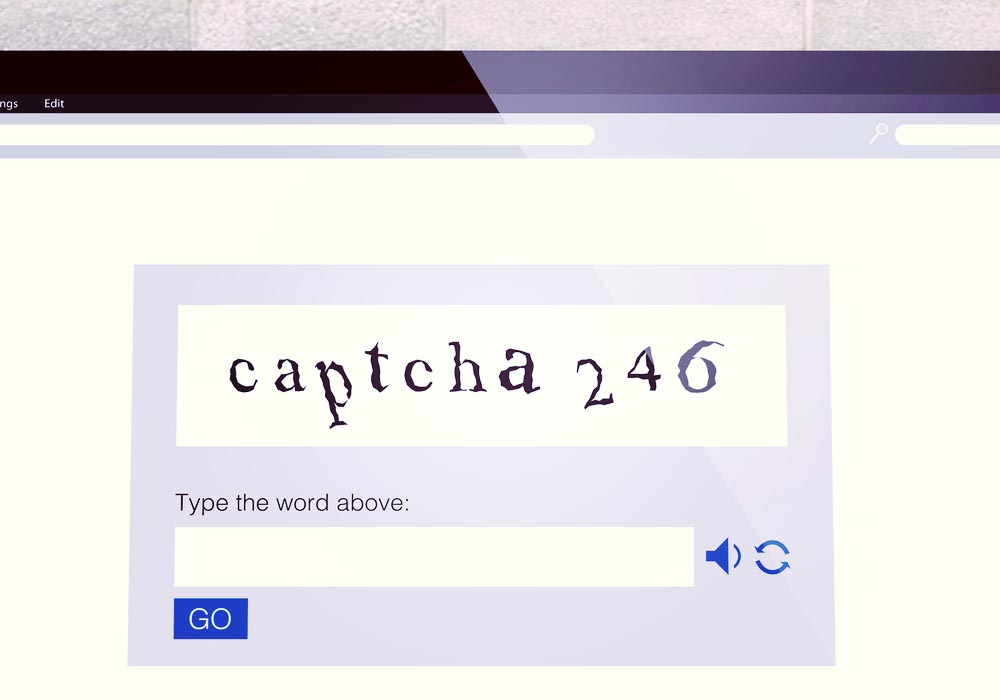What is a Captcha? How does it work?
A CAPTCHA (Completely Automated Public Turing test to tell Computers and Humans Apart) is a type of challenge-response test that is used to determine whether or not the user is human or a machine.
CAPTCHAs are often used to prevent automated bots from carrying out tasks on websites, such as creating multiple accounts, sending spam messages, or scraping data.
The most common type of CAPTCHA involves displaying a distorted image of a word or phrase that the user must type in. The image is distorted in such a way that it is difficult for a machine to read but still understandable to a human. This helps to prevent automated bots from reading and entering the correct response. CAPTCHAs can also take other forms, such as asking the user to identify images that contain specific objects or solving a simple math problem. Overall, CAPTCHAs are an effective way to prevent automated bots from carrying out malicious activities on websites, while still allowing humans to access the website's content or services.
Advantages of CAPTCHA
The advantages of CAPTCHA include:
Preventing Automated Bots: CAPTCHAs are effective at preventing automated bots from carrying out malicious activities on websites, such as creating multiple accounts, sending spam messages, or scraping data.
Protecting Websites: CAPTCHAs help protect websites from spam and other types of automated attacks that can harm the website and its users.
Security: CAPTCHAs are an important security measure that can help prevent unauthorized access to sensitive information, such as user accounts or payment information.
User Verification: CAPTCHAs can help verify that the user is human and not a machine, which is important in situations where human interaction is necessary, such as during account creation or payment transactions.
Accessibility: CAPTCHAs can also be designed to be accessible to people with disabilities, such as those who are visually impaired, by providing alternative text or audio options.
Overall, CAPTCHAs are an important tool for protecting websites and their users from automated attacks, while still allowing legitimate users to access the website's content and services.
Disadvantages of CAPTCHA
The disadvantages of CAPTCHA include:
User Experience: CAPTCHAs can be frustrating for users, particularly those who have difficulty deciphering the distorted images or completing the required tasks. This can lead to a negative user experience and discourage users from using the website.
False Positives and Negatives: CAPTCHAs are not foolproof and can sometimes generate false positives or negatives, which can lead to legitimate users being denied access to the website or malicious bots being allowed through.
Accessibility: While CAPTCHAs can be made accessible for people with disabilities, not all websites do so, which can make it difficult or impossible for some users to access the website.
Security Risks: CAPTCHAs can also pose security risks if they are poorly designed or implemented. For example, if the CAPTCHA is not properly encrypted or secured, it can be intercepted or bypassed by hackers.
Limited Effectiveness: While CAPTCHAs can be effective at preventing automated bots from carrying out malicious activities, they are not a complete solution and can be bypassed by more sophisticated bots or human-powered attacks.
Overall, CAPTCHAs have their limitations and can be a source of frustration for users, but they are still an important tool for protecting websites and their users from automated attacks. It is important to design and implement CAPTCHAs carefully to minimize the negative impact on users and maximize their effectiveness in preventing automated attacks.
Global usage of CAPTCHA
CAPTCHAs are widely used around the world on a variety of websites and applications. They are used to prevent automated bots from carrying out malicious activities, such as spamming, scraping, or brute-force attacks.
Some of the common examples of websites and applications that use CAPTCHAs include:
Social media platforms: Social media platforms like Facebook, Twitter, and Instagram use CAPTCHAs to prevent automated bots from creating fake accounts or spamming users with unwanted messages.
E-commerce websites: E-commerce websites like Amazon and eBay use CAPTCHAs to prevent automated bots from scraping their product information or trying to guess users' passwords.
Online payment systems: Online payment systems like PayPal and Stripe use CAPTCHAs to prevent automated bots from attempting to hack into users' accounts or steal their payment information.
Online gaming websites: Online gaming websites use CAPTCHAs to prevent automated bots from exploiting their systems or cheating in multiplayer games.
Overall, CAPTCHAs are widely used around the world to protect websites and their users from automated attacks. While they can be a source of frustration for users, they are an important tool for maintaining the security and integrity of online systems.
